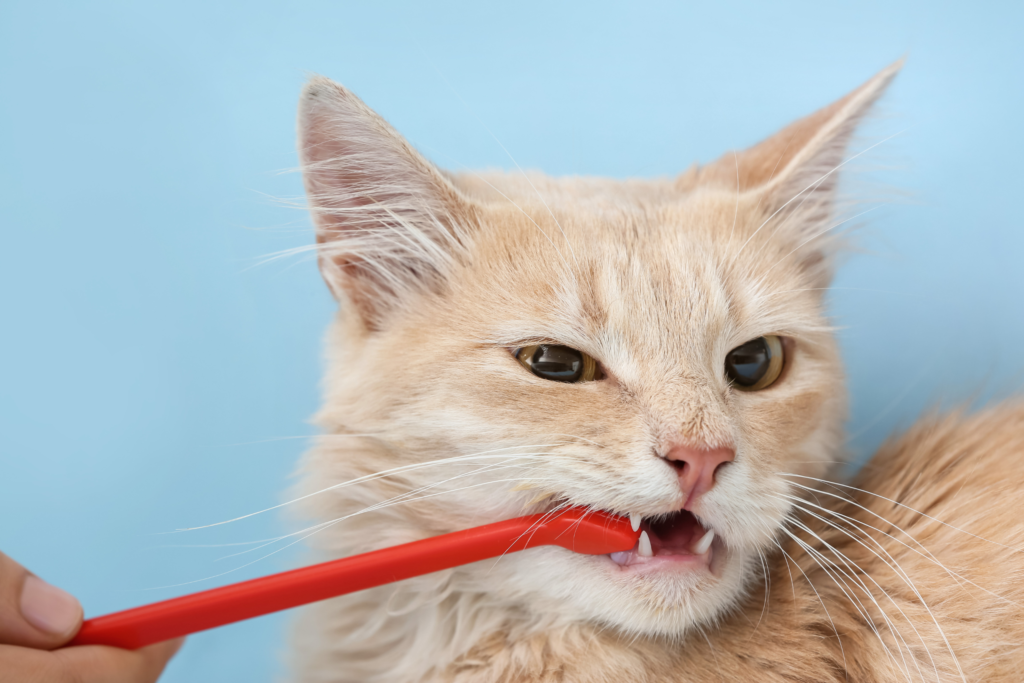Dental care is not limited to humans. Animals, especially cats, and dogs, need it as much as we do. Therefore, it is crucial to understand the vitality of dental care in pets. In today’s modern era, many practices and procedures aim to maintain good oral hygiene and prevent dental problems in pets. It involves both at-home care as well as professional veterinary dental care. But first, pet parents should know why their furry friends need dental care. And what can go wrong if they don’t receive the dental attention they need?
Why Do Pets Need Dental Care?
Like humans, our pets can also develop dental issues like plaque, tartar, gum diseases, tooth decay, and oral infections. While it may not seem as severe as many other infections, it can cause significant pain and discomfort to our beloved babies. It can lead to difficulty eating, lousy breadth, and systematic health issues. Ultimately, dental health can cause many complications for our pets and affect their quality of life.
Good dental care is directly proportional to a happier and healthier life. And it is no joke. Dental problems can impact the overall health of animals. Bacteria from dental infections can enter the bloodstream and affect vital organs such as the heart, liver, and kidneys, potentially leading to more severe health problems.
Therefore, it is high time pet parents start giving equal importance to dental care. Proper dental care for pets is crucial for maintaining their overall health and well-being. Hence, Jaldee Vets brings you five dental care tips to help you keep your pet’s teeth and gums healthy.
5 Dental Care Tips for Pets
Regular Brushing
Yes! You read it right. Just like humans, our pets need regular brushing to keep their teeth clean. And as mentioned before, it is easy to find specific brushes and toothpaste in today’s modern world. Vets often advise starting slowly and gently introducing brushing to your pet. And then gradually increasing the time and frequency. However, pet parents must ensure they brush their teeth at least two to three times a week. Be sure to reward your pet with praise and treats for positive reinforcement.
Appropriate Chew Toys
While many chew toys available in the local Indian market are not ideal for dogs. However, many modern chew toys help remove plaque and tartar buildup. Dental chew toys are specifically to help improve your pet’s oral health. Some chew toys have grooves or bristle-like features that can aid in plaque removal. Chew toys serve multiple purposes, such as cleaning dogs’ teeth, exercising their jaws, and relieving boredom.
Dental Treats
Not all treats create dental issues. Following the famous quote, modern problems require modern solutions. In today’s modern era, dental treats and chews are available in the market to improve your dogs’ oral health. These treats and chews help reduce plaque, freshen their breath, and support gum health. Many dog care brands like Pedigree, Royal Canin, Drools, and Dental Care offer a variety of chews and treats to help improve oral hygiene. However, pet parents must be sure to choose high-quality, vet-approved products. And one must not forget to monitor them while enjoying their treats to prevent choking hazards.
Regular Dental Check-Ups
Regular dental check-ups for pets are as important as for humans. They can develop diseases that are not visible to the naked eye of the owner. Professional dental cleanings under anesthesia may be necessary to remove stubborn plaque and tartar. The vet can also examine your pet’s teeth and gums for signs of dental issues such as tooth decay, gum diseases, or oral infections. Vet consultations are now super convenient with Jaldee Vets, as we provide online consultations and bookings to avoid the hassle of waiting and queues.
Balanced Diet
While most of us don’t find a diet relatable to our pet’s dental care, more or less a balanced diet contributes to healthy gums and teeth. Dry kibble or specially formulated dental diets can help reduce plaque and tartar accumulation compared to soft or wet food. Foods like frozen carrots and watermelon are also great for oral hygiene. However, it is advisable to consult a vet to determine the most appropriate diet for your dog’s dental needs.

